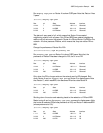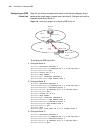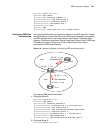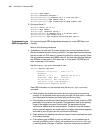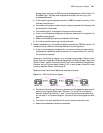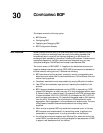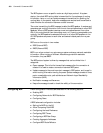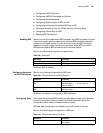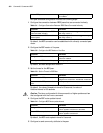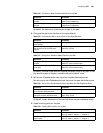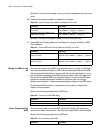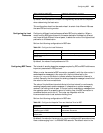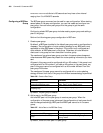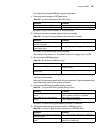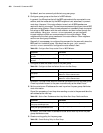
Configuring BGP 451
■ Configuring a BGP Community
■ Configuring a BGP AS Confederation Attribute
■ Configuring Route Dampening
■ Configuring Synchronization of BGP and IGP
■ Configuring the Interactions between BGP and an IGP
■ Defining an Access List Entry, an AS Path-list Entry, a Routing Policy
■ Configuring a Route Filter for BGP
■ Resetting BGP Connections
Enabling BGP Specify the local AS number when BGP is enabled. After BGP is enabled, the local
router continuously monitors whether any incoming BGP connection request is
received from the peer routers. To make the local router send BGP connection
requests to the peer routers, use the
peer command. When BGP is turned off,
BGP protocol closes all BGP connections that have been created.
Perform the following configurations in system view.
Table 508 Enable BGP
By default, BGP is disabled.
Configuring Networks
for BGP Distribution
Perform the following configurations in BGP view.
Table 509 Configure Networks for BGP Distribution
By default, no network is configured for BGP distribution.
Configuring Peers The routers that exchange BGP packets are called peers to each other. Peers can
be directly connected routers or indirectly connected routers but should be
connected by other directly connected router or routers.
BGP peer basic configuration includes setting the AS number of the peer.
Perform the following peer configuration in BGP view.
Table 510 Configure AS Number of the Peer
Operation Command
Enable BGP and enter into the BGP view bgp [ as-number ]
Turn off the BGP undo bgp
Operation Command
Specify a list of networks associated with
BGP
network ip-address [ mask
address-mask ] [ route-policy
policy-name ]
Delete a list of networks associated with
BGP
undo network ip-address [ mask
address-mask ]
Operation Command
Configure AS number of the peer peer peer-address as-number
as-number



